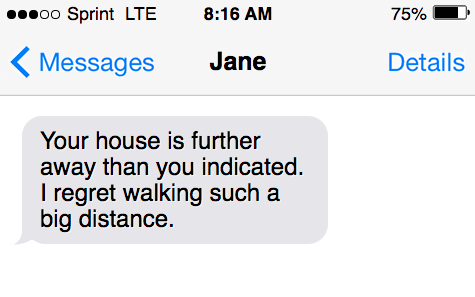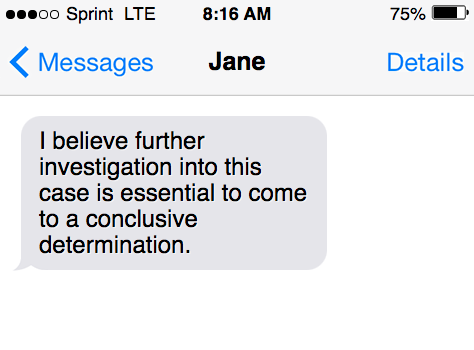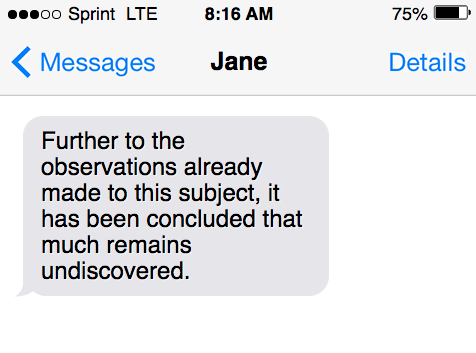Farther and further are two very common words in the English language. While they differ in their meanings, people often get confused between them. This is because the two words sound very similar and have similar spellings. Additionally, to say that these words are completely different in their meaning would be wrong. In essence, the two words convey the same message which adds to the confusion even more, especially in the minds of young children.
In order to address the many confusions surrounding these words, let’s understand them completely with the help of examples. First, let’s begin with their definitions.
Definition of “farther”
In plain terms, the word “farther” means by, to, or at a great distance. Other definitions of this word are “by a great deal” and “over a large expanse of time or space.”
From the definition of the word, it is clear that farther refers to something or someone located at a distance. It is an extension of the word “far” and typically indicates a much bigger distance or an additional distance to what is already established.
The word is also used to emphasize the distance at which the person or object is.
- For example: Farther away
Definition of “further”
If you take up the straightforward definition of the term “further”, it also refers to something or someone situated at a distance. However, other definitions of this word are “beyond the point that is already reached” and “in addition to what is already accepted”.
Further is also an extension of the word “far”. However, the difference between further and farther lies in the context in which they are to be used.
Research shows that American English speakers use the term “further” to refer to a figurative measure. Moreover, they use the term “farther” to refer to physical distance.

In the adjective form, the word “further” means extended, additional, or more. In this regard, the definition hints that the correct usage of the term should not be to measure a physical distance. Instead, it should be used to indicate the expanse of an idea, thought, or state of mind.
For example, further to.
To make these definitions and their usage more clear, it is essential to look at some examples. These examples would shed more light on the right manner in which each of these terms can and should be used.
When to use “farther”
The word “farther” should be used when one is talking about a physical distance. It should be used to refer to a distance greater than what is already known or accepted.
Examples in sentences
Some examples of how the word “farther” can be used include:
- My house is farther away from the new school than it was to my old school.
- Every step you take to the left is taking you farther away from the restaurant, you need to move right.
- If we leave early, we can avoid the traffic and reach farther in a short span of time.
- The more time you spend procrastinating, the farther away you push the accomplishment of your goals.
- When I move to college, we will be farther apart from each other.
When to use “further”
While the word “farther” has been reserved to be used to refer to physical distances, the word “further” covers everything else. This includes thoughts, ideas, and anything that comes under the purview of figurative speech.
In all such instances, the word to be used will be “further” and not “farther”.
Examples in sentences
- I believe further investigation into this case is essential to come to a conclusive determination.
- Further to the observations already made to this subject, it has been concluded that much remains undiscovered.
- Your findings seem abstract, I recommend you research further on the topic.
- You need to hone your skills further in order to get promoted for the job.
- Further to our last interaction, I would like to discuss the progress of the project.
Is it “farther from the truth” or “further from the truth”
Even though, colloquially, both these phrases are used interchangeably, the grammatically correct phrase is “further from the truth”. A lot of people use the phrase “farther from the truth”. In our daily interactions, it is accepted by everyone.

Strictly speaking in a grammatical sense, this usage is not entirely correct. This is because the truth is not a physical place which can be accessed.
For example:
- If you think that I do not love you, you are wrong, nothing could be further from the truth.
This sentence is grammatically correct.
- If you think that I do not love you, you are wrong, nothing could be farther from the truth.
However, this sentence is not correct because you cannot measure a distance from “truth”. It is a concept, therefore the reference to any distance is figurative.
Is it “farther away” or “further away”
Another common phrase that people often get confused about is “further away” and “farther away.” In this scenario, the phrase “farther away” is the correct phrase construction. Unsurprisingly, many people use these phrases interchangeably as well. However, that is wrong, at least as far as American English rules are concerned.
For instance:
- Your house is farther away than you indicated. I regret walking such a big distance.
This sentence makes perfect sense and is grammatically correct.
- Your house is further away than you indicated. I regret walking such a big distance.
This is a grammatically incorrect sentence.
While it is incorrect to use the phrase further away, the correct usage is “further to”. It can be used for sentences like:
- Further to the email I sent three days ago, I would like to remind you that your payment is still due.
Is it “further along” or “farther along”
The phrases “further along” and “farther along” have confused more people than one can expect. These phrases are used incorrectly all the time leading to the need for a formal clarification. To put the debate around this at rest once and for all, the correct phrase that should be used is “further along”.

“Farther along” is grammatically incorrect, as can be understood from the following sentence:
- The house renovations seem to be further along than we expected them to be by this point.
While this sentence construction is grammatically correct, the following is not.
- The house renovations seem to be farther along than we expected them to be by this point.
Conclusion
The difference between the words further and farther have been confusing even the masters of grammar for the longest time.
However, with continued usage, anyone can easily understand the difference between the two and quickly become a pro at identifying correct usage.
Sources
Inside this article
Fact checked:
Content is rigorously reviewed by a team of qualified and experienced fact checkers. Fact checkers review articles for factual accuracy, relevance, and timeliness. Learn more.
Core lessons
Glossary
- Abstract Noun
- Accusative Case
- Anecdote
- Antonym
- Active Sentence
- Adverb
- Adjective
- Allegory
- Alliteration
- Adjective Clause
- Adjective Phrase
- Ampersand
- Anastrophe
- Adverbial Clause
- Appositive Phrase
- Clause
- Compound Adjective
- Complex Sentence
- Compound Words
- Compound Predicate
- Common Noun
- Comparative Adjective
- Comparative and Superlative
- Compound Noun
- Compound Subject
- Compound Sentence
- Copular Verb
- Collective Noun
- Colloquialism
- Conciseness
- Consonance
- Conditional
- Concrete Noun
- Conjunction
- Conjugation
- Conditional Sentence
- Comma Splice
- Correlative Conjunction
- Coordinating Conjunction
- Coordinate Adjective
- Cumulative Adjective
- Dative Case
- Determiner
- Declarative Sentence
- Declarative Statement
- Direct Object Pronoun
- Direct Object
- Diction
- Diphthong
- Dangling Modifier
- Demonstrative Pronoun
- Demonstrative Adjective
- Direct Characterization
- Definite Article
- Doublespeak
- False Dilemma Fallacy
- Future Perfect Progressive
- Future Simple
- Future Perfect Continuous
- Future Perfect
- First Conditional
- Irregular Adjective
- Irregular Verb
- Imperative Sentence
- Indefinite Article
- Intransitive Verb
- Introductory Phrase
- Indefinite Pronoun
- Indirect Characterization
- Interrogative Sentence
- Intensive Pronoun
- Inanimate Object
- Indefinite Tense
- Infinitive Phrase
- Interjection
- Intensifier
- Infinitive
- Indicative Mood
- Participle
- Parallelism
- Prepositional Phrase
- Past Simple Tense
- Past Continuous Tense
- Past Perfect Tense
- Past Progressive Tense
- Present Simple Tense
- Present Perfect Tense
- Personal Pronoun
- Personification
- Persuasive Writing
- Parallel Structure
- Phrasal Verb
- Predicate Adjective
- Predicate Nominative
- Phonetic Language
- Plural Noun
- Punctuation
- Punctuation Marks
- Preposition
- Preposition of Place
- Parts of Speech
- Possessive Adjective
- Possessive Determiner
- Possessive Case
- Possessive Noun
- Proper Adjective
- Proper Noun
- Present Participle
- Prefix
- Predicate



